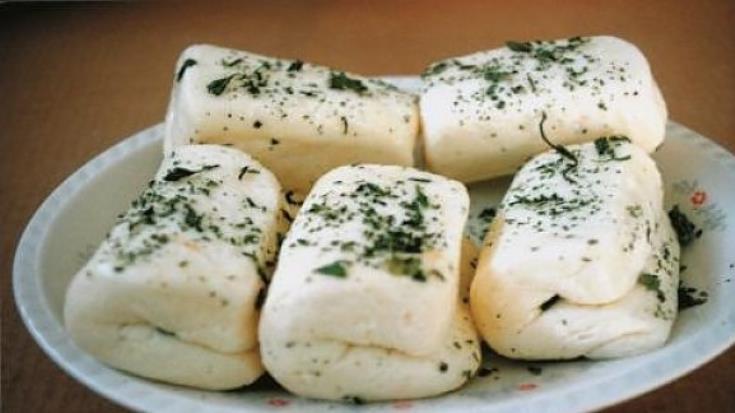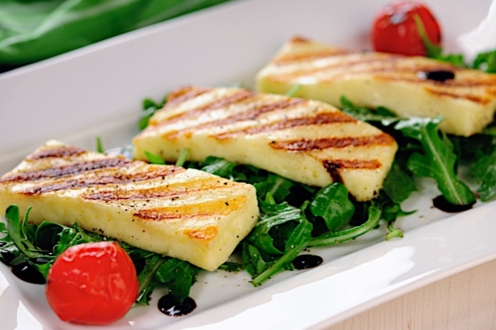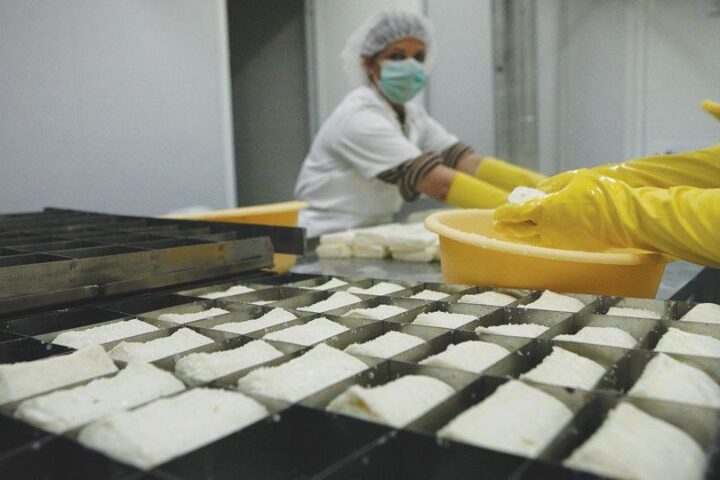Authorities will turn up the heat on dairy producers trading Halloumi products that do not meet the required EU standards under the cheese’s PDO (Product of Designated Origin), following a Legal Services ruling.
The Attorney General’s office has essentially ruled that products that defy the PDO criteria cannot carry the Halloumi brand.
According to reports, Cyprus’ Law Office has urged the Agriculture and Commerce Ministries to tighten checks to ensure no substandard halloumi reaches local retailers.
According to the legal services, there is only room for a single product labelled halloumi, which is the one that meets the specifications of the PDO.
It argues that having different halloumi on the market will cause confusion and lead to consumers being deceived.
Since Halloumi’s PDO status, approved just over a year ago by the European Commission, authorities have spotted products which violate the file’s criteria, or worse, made with milk powder.
The PDO file submitted in 2014 said goat’s milk should by 2024 exceed cow’s milk, reaching a minimum of 51%, produced from specific Cypriot breeds of goats and sheep.
This did not satisfy cheesemakers who feared the loss of halloumi exports, claiming they could make halloumi under the EU Trademark, bypassing the milk ratio criteria.
The legal services were asked by the Agriculture and Commerce Ministries whether dairy producers could make and sell halloumi under the EU Trademark.
It said that producers are obliged to follow the specifications laid out in the PDO file, even if they choose to use the EU trademark on their products.
This also applies to Halloumi exports outside the bloc, meaning producers have to comply with the PDO file.
The legal services specifically refer to the milk ratio in the PDO file, clearly stating the percentage of sheep or goat milk should be higher than cow milk used in the mix.
Halloumi products not complying with the PDO criteria cannot be exported.
The PDO status means the rubbery cheese can only be produced in Cyprus under strict criteria, preventing imitators worldwide claiming the crown.
A prized Cypriot export, the soft rubbery cheese was given its PDO status on 1 October 2021.
Goat and sheep breeders have criticised the government for not carrying out the necessary checks.
Breeders argue that with dairy producers not conforming to the PDO criteria, their livelihood is at stake.
A protest two weeks ago outside the Presidential Palace turned ugly after angry farmers dumped tonnes of milk and set bales of hay alight.
Cheesemakers have openly expressed their concern over the thorny issue of goat’s milk exceeding cow milk in the ratio by 2024, arguing that a shortage in goat and sheep milk will make it next to impossible to produce halloumi in the large quantities.
They fear the obligation to sell halloumi in blocks could lead to plunging sales of other popular products, such as halloumi burgers and light halloumi, which will no longer be able to carry the brand name.
Sales and exports of Halloumi generated €266.5 mln in 2020.
The Agriculture Ministry values the global halloumi cheese market at €420 mln, while studies show it could generate over €625 mln in several years.









